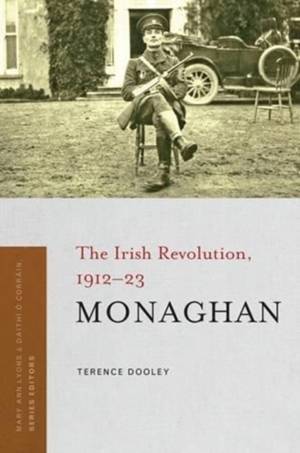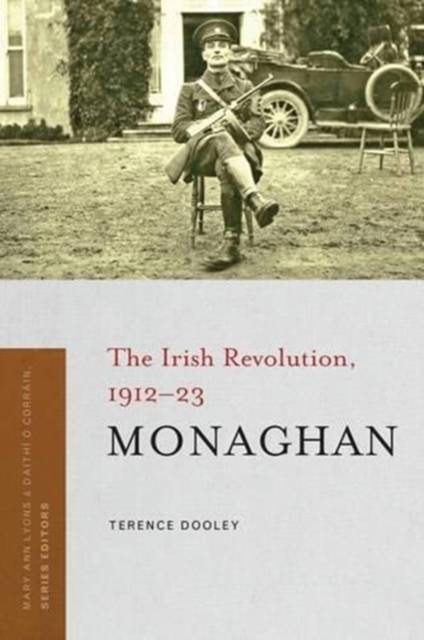
Je cadeautjes zeker op tijd in huis hebben voor de feestdagen? Kom langs in onze winkels en vind het perfecte geschenk!
- Afhalen na 1 uur in een winkel met voorraad
- Gratis thuislevering in België vanaf € 30
- Ruim aanbod met 7 miljoen producten
Je cadeautjes zeker op tijd in huis hebben voor de feestdagen? Kom langs in onze winkels en vind het perfecte geschenk!
- Afhalen na 1 uur in een winkel met voorraad
- Gratis thuislevering in België vanaf € 30
- Ruim aanbod met 7 miljoen producten
Zoeken
€ 30,45
+ 60 punten
Omschrijving
In 1912, a bloodless revolution had already taken place in Monaghan that resulted in the overthrow of one ruling elite, which was replaced by another. What began in 1912 with the signing of the Ulster Solemn League and Covenant, followed the next year by the founding of the Ulster Volunteer Force, might be considered from the Protestant perspective as an attempted counter-revolution. It was, at the very least, a determined effort to remain part of the British empire, the spiritual and ancestral home of Monaghan Protestants. But constitutional nationalists were not prepared to give up the gains they had made. Separatist nationalists wanted more, and so for them the 1916 Rising represented the beginning of unfinished business. In this political maelstrom there were agrarian agitators who sought the final solution to the land question; 2,500 young men who went to war, one-fifth of whom never returned and the others who did returned to a very changed country; and paramilitaries who divided along sectarian lines. Thus, between 1912 and 1923, Monaghan politics and society were transformed for a second time, not least of all by the imposition of the border with all the attendant social and economic problems partition brought. Because of Monaghan's socio-religious demographic and its borderlands location, this book offers an intriguing insight to how the period 1912-23 played itself out at local level. (Series: Irish Revolution 1912-23) [Subject: Irish Revolution, Easter 1916, Monaghan, Irish History, Irish Studies]
Specificaties
Betrokkenen
- Auteur(s):
- Uitgeverij:
Inhoud
- Aantal bladzijden:
- 206
- Taal:
- Engels
- Reeks:
Eigenschappen
- Productcode (EAN):
- 9781846826160
- Verschijningsdatum:
- 30/06/2017
- Uitvoering:
- Paperback
- Formaat:
- Trade paperback (VS)
- Afmetingen:
- 152 mm x 231 mm
- Gewicht:
- 340 g

Alleen bij Standaard Boekhandel
+ 60 punten op je klantenkaart van Standaard Boekhandel
Beoordelingen
We publiceren alleen reviews die voldoen aan de voorwaarden voor reviews. Bekijk onze voorwaarden voor reviews.









